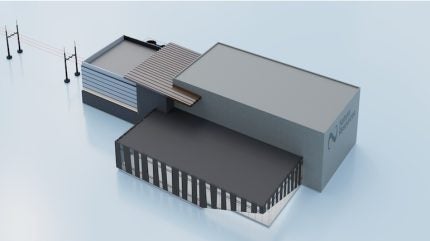
Abilene Christian University (ACU) and Texas Tech University (TTU) have signed a memorandum of understanding (MOU) with Natura Resources of Abilene to seek business opportunities and funding for projects related to Natura’s molten salt reactor (MSR) currently under construction on the ACU campus. The collaboration also includes the Texas Produced Water Consortium (TxPWC) located at TTU.
The partners seek to demonstrate the potential for Natura’s commercial reactors to address Texas’s critical water and energy needs by integrating MSR technology with water desalination and energy production systems.
Texas faces significant challenges in meeting its growing demand for clean energy and water. ACU says small modular MSRs offer a promising and scalable solution and could become a valuable asset to purify produced water generated by oil and gas wells, which is then available for agricultural and other beneficial uses.
Doug Robison, founder and President of Natura Resources noted:. “Our partnership with Texas Tech University and Abilene Christian University exemplifies our collaborative approach to addressing critical challenges and driving technological advancements. This collaboration will pave the way for the commercial development and deployment of MSR technology in Texas and beyond.”
TTU offers extensive expertise in chemical process engineering, separation technologies and the high-temperature environments required for MSRs. The university draws from its experience with oil well technology. The TxPWC is leading research and development of purification of produced water. Additionally, Reese Center, located west of the university’s main campus in Lubbock, provides a secure and specialised environment for conducting the research necessary to advance MSR systems.
The next steps for this partnership include completion of the demonstration reactor and the development of systems to integrate Natura’s reactors with water desalination and energy production technologies.
The Natura MSR-1 being developed at ACU as the university’s molten salt research reactor (MSRR) is the first liquid-fuelled reactor design to receive a construction permit from the US Nuclear Regulatory Commission. MSR-1 is a 1 MWt, graphite-moderated, fluoride salt flowing fluid (fuel dissolved in the salt) research reactor. The MSRR will be used for on-campus nuclear research and training in advanced nuclear technologies.
Natura is also partnering with Texas A&M University to deploy the MSR-100 – a 100 MWe system for commercial applications. This initiative is part of the Energy Proving Ground, which involves multiple nuclear reactor companies. The MSR-100 design uses a liquid fuel composed of fissile uranium material dissolved in a molten salt mixture. Natura says this enhances safety, efficiency and produces less long-lived radioactive waste.
The reactor operates at temperatures exceeding 600°C, which improves thermal efficiency and electricity generation. It also operates at lower pressures and includes passive safety mechanisms that reduce the risk of accidents. The high-temperature heat generated by the MSR-100 can be used for desalination, providing a sustainable source of clean water.






